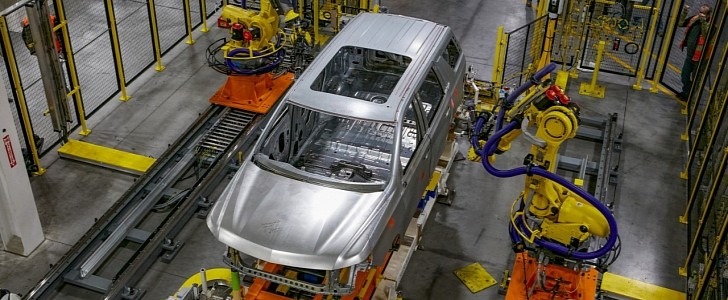The global chip shortage is still wreaking havoc everywhere around the world, and companies in the automotive sector certainly know this the best.
Carmakers are one by one suspending their operations temporarily because of the lack of semiconductors, with larger companies like Ford even being forced to halt the manufacturing of the most popular models simply because not enough chips are available.
This time, the one coming with some bad news on this front is none other than General Motors, as the company confirmed it’d be hit harder than originally predicted by this huge semiconductor struggle.
So the impact of the chip shortage on its North America operations wouldn’t total 100,000 units as originally anticipated but double that figure, as GM’s finance chief Paul Jacobson says the company expects a drop in production of as much as 200,000 cars.
However, Jacobson also has some good news. 2022 is expected to come with a slight recovery in terms of semiconductor inventory, so General Motors has every reason to believe it’ll be what’s being described as a “more stable year.” However, don’t expect things to return to the pre-2020 levels, as chip foundries across the world will still have a hard time aligning their production with the global demand.
So while 2022 will indeed bring improvements for the semiconductor supply chain, the chip shortage wouldn’t be over, with more and more companies expecting the crisis to continue into 2023.
For the time being, however, carmakers out there, both in the United States and everywhere else across the globe, are looking into ways to minimize the impact of the lack of semiconductors on their output.
While some are suspending the production altogether, waiting for suppliers to send more semiconductors, others are giving up on some systems installed on their cars, therefore reducing the number of chips that are required for a new model.
This time, the one coming with some bad news on this front is none other than General Motors, as the company confirmed it’d be hit harder than originally predicted by this huge semiconductor struggle.
So the impact of the chip shortage on its North America operations wouldn’t total 100,000 units as originally anticipated but double that figure, as GM’s finance chief Paul Jacobson says the company expects a drop in production of as much as 200,000 cars.
However, Jacobson also has some good news. 2022 is expected to come with a slight recovery in terms of semiconductor inventory, so General Motors has every reason to believe it’ll be what’s being described as a “more stable year.” However, don’t expect things to return to the pre-2020 levels, as chip foundries across the world will still have a hard time aligning their production with the global demand.
So while 2022 will indeed bring improvements for the semiconductor supply chain, the chip shortage wouldn’t be over, with more and more companies expecting the crisis to continue into 2023.
For the time being, however, carmakers out there, both in the United States and everywhere else across the globe, are looking into ways to minimize the impact of the lack of semiconductors on their output.
While some are suspending the production altogether, waiting for suppliers to send more semiconductors, others are giving up on some systems installed on their cars, therefore reducing the number of chips that are required for a new model.








